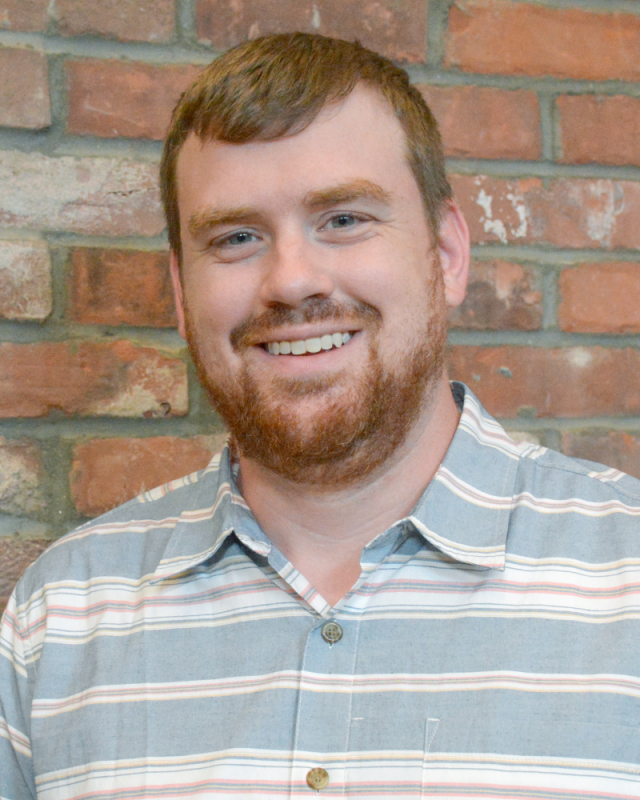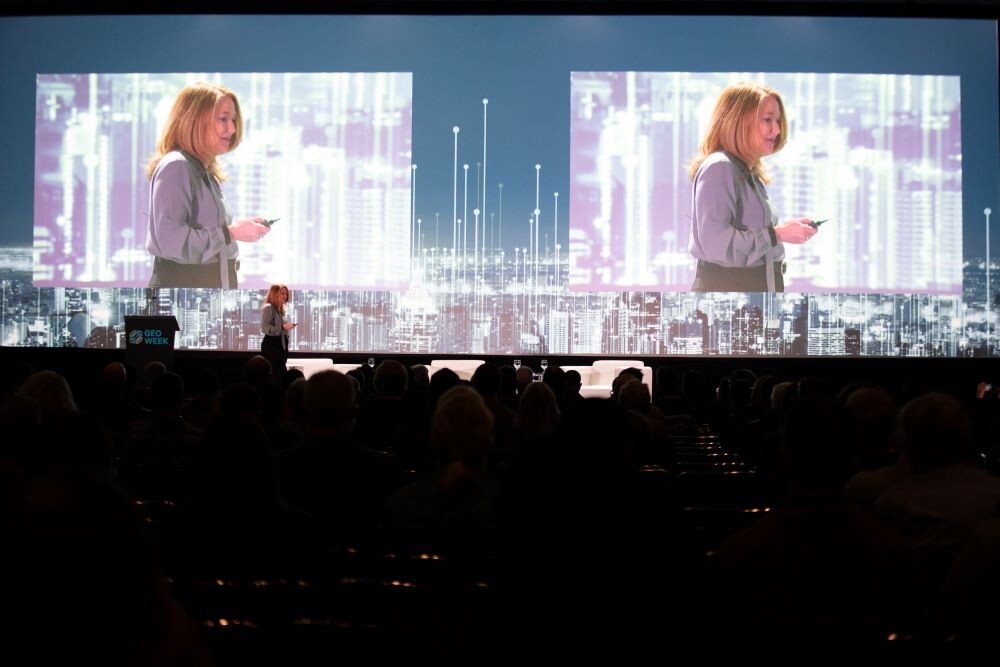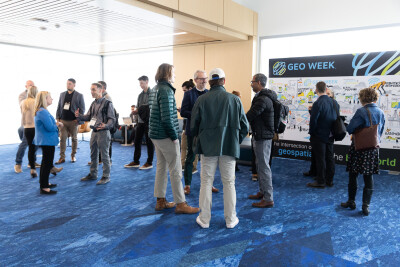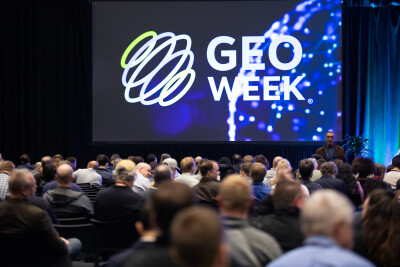The AEC industry is currently at an inflection point. Aging infrastructure desperately needs updating and maintenance, and new infrastructure is needed at massive scale to accommodate growing populations, particularly in and around urban centers. Alongside all of this, the industry is experiencing significant change, embracing technology like never before and utilizing new tools to streamline workflows and maximize profits. Most of this change is certainly positive, but it also puts the people working at all levels of the industry in a position of having to shift the way they’ve long worked, with the chance of more change coming down the line.
The massive changes being experienced by the industry, and the continuing shifts forecasted for coming years, was the focus of the opening keynote of Geo Week 2024, The Bright Future Ahead: Navigating AEC, 3D, and Geospatial Innovation and Change. The keynote started with a short presentation by Claire Rutkowski, Chief Information Officer at POWER Engineers, and was followed by a fascinating panel discussion led by Rutkowski alongside Andrea Springer, Vice President, Digital Engineering Solutions at CDM Smith, and Ben Stocker, Senior Construction Technologist at Skender.
Rutkowski’s presentation started off with a look at the pressure currently being placed on those working within the infrastructure space. She noted how climate change is a driving force behind the need for new and/or improved infrastructure around the globe, and this being combined with engineering firms dealing with workforce shortages and other major challenges. Technology, she said, can help overcome these challenges, as we turn the page from Industry 4.0 to Industry 5.0 and begin to see these technologies converging.
"Convergence is the name of the game in Industry 4.0," she said. "It's about bringing things together, operating in a way they don't operate now more seamlessly."
Looking over the horizon, Rutkowski pointed toward Singapore as an example to which the rest of the world can look. She discussed the potential of things like IoT sensors and digital twins to unlock future workflows and tools, enabling the ability for smart simulation as well as environmentally-friendly practices like utilizing more efficient building materials and renewable energy sources.
In order to unlock this great potential, however, the industry needs an influx of new workers as well as current workers having the desire to continue learning new tools. Technology is certainly a big help in the work that needs to be done, but humanity needs to be central as well.
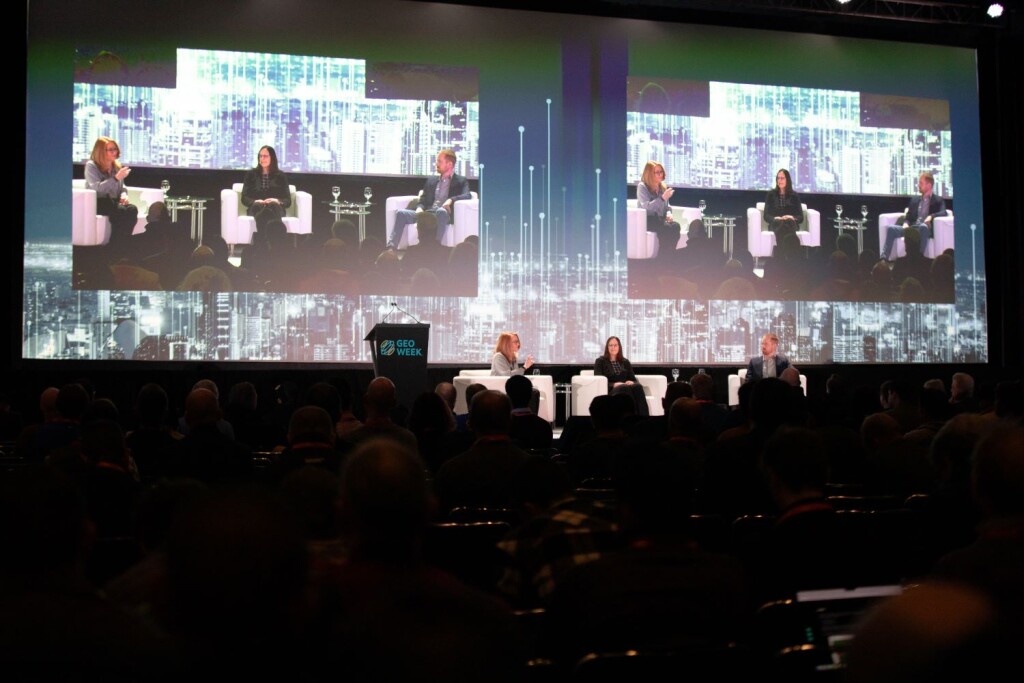
"The thing that's going to be really important five, ten years from now is humanity," Rutkowski told the audience. "The one thing a computer can't do is be human. The ability to provide empathy and compassion, to really take the time to understand what the client wants so that we can put it into words the computer can understand - those skills are going to be really, really important."
Following Rutkowski’s presentation, all three speakers came together for a discussion covering the future of the AEC industry’s workflow and what needs to be done to maximize the productivity that comes from all of these tools.
The panel touched on a number of different topics that are going to be a focus for the industry moving forward. In addition to that, though, it was mentioned how important it is to simply get the industry to start adopting the technology that is already in place.
"We're not just looking ahead," Stocker said in the panel discussion. "We're also looking behind, trying to get people to use the stuff that came out five years ago."
There was also discussion about how big name players – think Amazon, Microsoft, Google, and other companies of that size – could factor into these new technologies, and whether or not they could be true disruptors. This is a point that Springer combatted, however.
"We can't get around the fact that we've got codes and regulations, and many of us are professionals who need to get credentialed and lisenced," she said. "It's not something Microsoft, and Google, and AWS can work around easily, and that's why they haven't to this point."
Overall, while both Rutkowski’s presentation and the subsequent panel discussion touched on some of the challenges that the industry will face, and didn’t shy away from the hard work that taking these steps forward will require, they largely presented an optimistic tone about what lies ahead and how exciting this time is for the industry.
As Rutkowski said, "People are what drive change, not technology. And our ability to adapt and use that technology is either what gets us ahead or leaves us behind. I couldn't be more excited to be in the infrastructure industry right now."

